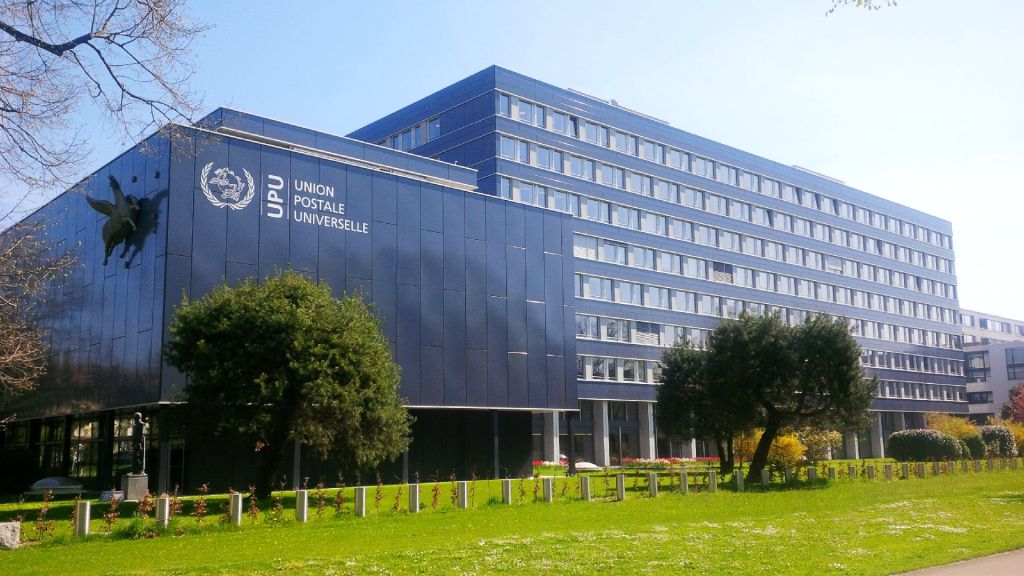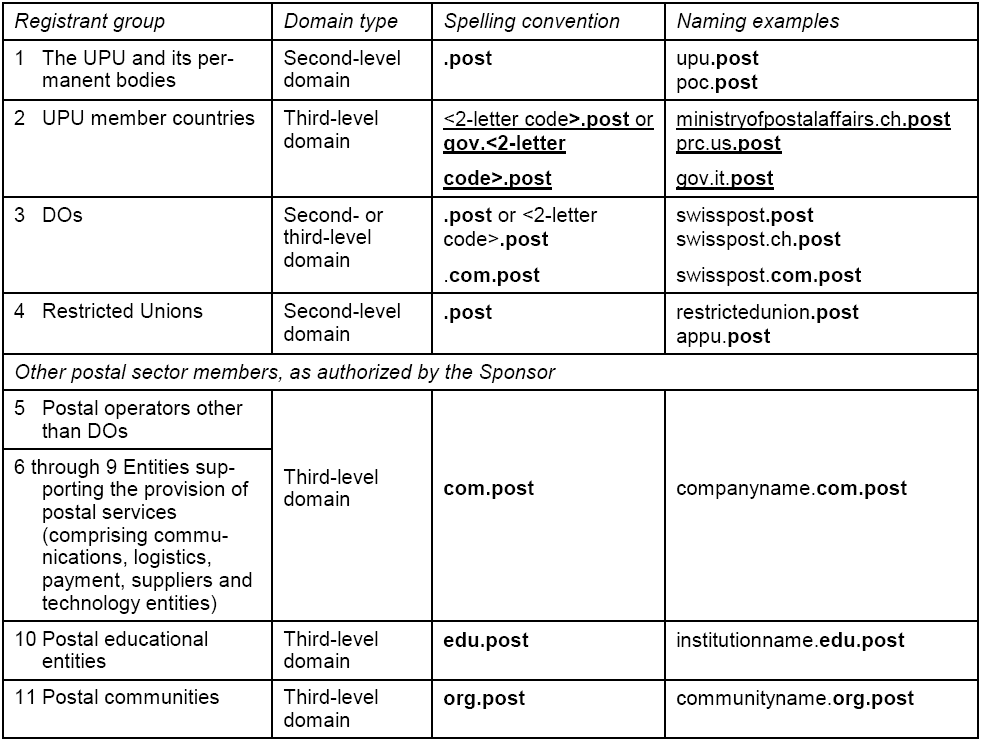- Home ›
- Digital Post Services ›
- UPU
The Universal Postal Union & .Post
A Brief Introduction

At A Glance
The Universal Postal Union (UPU), an intergovernmental organization of the United Nations, is undergoing a revolution.
The name of this revolution is The Extension of the Postal Service Provision into the Internet and it's being achieved with the Top Level Domain (TLD) .post.
.post is truly a game changer.
The TLD .post domain will function as a secure and trusted digital postal territory on the Internet, dedicated to electronic postal services.
So what does that mean?
The TLD .post will be the world’s first global, official, standardized, secured online communications and business environment. And based on open standards, it means everyone connected in any way with the world of communications can be involved.
That means for commercial businesses using e-commerce,
governments wanting to communicate securely with its citizens,……
Authenticated Identities
Perhaps the most significant aspect of the TLD .post will be the creation of authorized, authenticated e-identities.
Physical and electronic identities will be combined to create a PostID, and this authenticated identification provides the basis for identifying anyone participating in communicative, financial, commercial or legal transactions.
Effectively the TLD .post makes all individual, one-off, local or national systems for authenticating online identities and transactions redundant, replacing them with a single, truly global platform, accessible to everyone and ideal for all cross-border transactions.
But how did we get here?
Structure Of The Universal Postal Union
Traditionally, the universal postal service we’ve known for the last 200 years has been based on a 2-pillar model:
1. Delivery of physical mail pieces (up to 2 kg) and parcels (up to 20 kg), and
2. Postal financial services (postal savings banks)
Now postal services are adopting information communication technologies (ICT) and becoming integrated communication solutions providers.
This adds a 3rd pillar:
3. Secured electronic postal services, postal registered E-mail and electronic postal certification marks
In order to incorporate this 3rd pillar - represented by the TLD .post - the current structure of the global postal network needs to be reshaped, together with its policies, principles and standards.
What Is .Post For?
The TLD .post functions as an interoperable platform for postal e-services, enabling postal operators designated by the member countries of the universal postal union worldwide to offer their customers new services including:
- hybrid mail
- secured electronic postal services
- postal registered E-mail
- yellow page services
- PostID
- electronic postal
certification marks
- Postal-E-Mailboxes
This extends the postal universal service into the internet and creates a global electronic universal postal service.
This will also encourage the growth of:
- Innovative products and services, e.g. new direct & dialogue services
- E-commerce services – e.g. e-malls, payment and transaction (escrow) services, integrated Customs Declaration System
- E-government services – linking an individual’s physical and electronic address to create a PostID
The benefits to postal operators are numerous.
.Post Domain Management
The .post Domain Management Policy defines the Universal Postal Union's rules governing the allocation and use of .post domain names.
As the table below shows, .post domain holders will be divided into second-level and third-level domains:

Regulatory & Legal Aspects Of .Post Development
The TLD .post will be introduced in a staged approach.
As a result, there will initially be a bias towards postal operators designated to fulfill the Univeral Postal Union's conventions and regulations by their member states (Designated Operators – currently the national incumbents). They will be first in line when it comes to selecting domain names.
This runs counter to the European ideals of a free market and therefore the EU is working hard to open up the TLD .post to non-designated operators.
CEN – the European Committee for Standardization, through its Technical Committee 331 “Postal Services” - has converted technical UPU Standards into CEN format, to ensure that postal services other than the designated operator at least have access to technical standards.
Postal Services Should Provide The Infrastructure For An Electronic Universal Service
In the world of communication, postal services undoubtedly support a global infrastructure.
Taking their fundamental structures and principles and extending this infrastructure into the digital age is the route chosen by the Universal Postal Union, and is based on the resolutions and policies underwritten by its member states.
These principles and policies foresee electronic postal services provision of an infrastructure in which the integrity of the document (whether digital or physical), the authenticity of the parties involved (sender and recipient) and the privacy of the communication is secured.
All this will take place in an exclusive, regulated environment, provided by postal services globally.
A Few Contentious Issues
1. Equal access: Limiting the extension of the postal service provision to a pre-selected group of postal services designated by the member states of the UPU would effectively create a reserved postal service area. This would contravene (European) policies and regulations. Postal service providers who are not members of the UPU must be provided with equal access on a non-discriminatory basis.
2. Data protection & privacy: data protection and postal-related legislation covering the privacy of letter post communication also needs to be extended into the internet. The implications this has for the designated operators, their processes and operational data handling are huge, and must be studied in detail.
3. Regulation: equal access demands interoperability and inter-connectivity between all the stakeholders involved.
Walter Trezek is the Chairman of the UPU Consultative Committee (CC), and CEN Liaison Officer on European postal standardization to the Universal Postal Union.
- Home ›
- Digital Post Services ›
- UPU
Does this article cover a topic relevant to your business? Access the CLS Business Lounge for the market intelligence you need to stay ahead of the crowd. Find out more




















